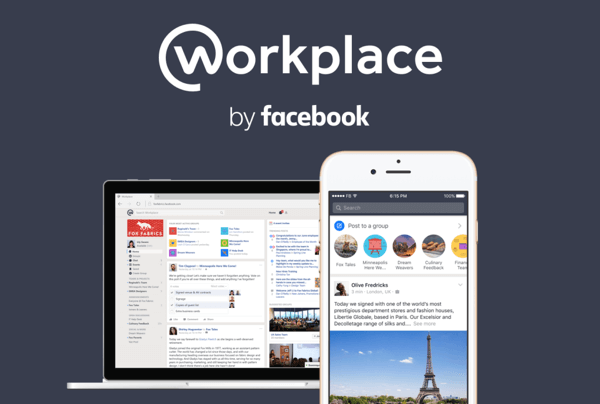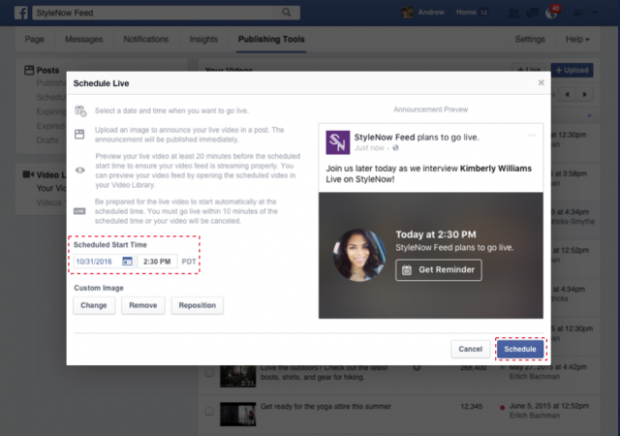Watch Whatever Works Online Facebook
How to Create a Facebook Contest that Actually Works. Facebook recently passed 2 billion monthly users. No one in the history of humanity has ever had the means to talk directly to so many people.

How to hack a Facebook account. How to hack a Facebook account or online Facebook hacker are some of the keywords that are searched for most these days. Alright, I’m putting my foot down: People need to stop saying “Facebook is dead.” We’ve seen marketers say the same thing about SEO over and over again. In.
We need a new word for behemoth! Watch Kuso Online Full Movie. But predictably, with something so large comes a quantity of content that is also unheard of.
And it’s growing fast. You might feel tempted to buy fans. Don’t. You can find far more effective (and ethical) ways to build your Facebook brand organically.

- Air France announced this week it is launching Joon, a new airline “especially aimed at a young working clientele, the millennials,” and more specifically the.
- Facebook scams are on the rise, and putting you at risk! Here are five ploys you need to watch out for the next time you go on Facebook.
- Mediagazer presents the day's must-read media news on a single page.
Despite hot competition from the likes of Instagram and the messaging apps like Whatsapp, Facebook is still on another level — both in terms of size and reach but also in terms of functionality. The ability to host various campaigns inside Facebook makes it the ideal platform for running contests. I can hear you groaning from back there.“Contests are the oldest trick in the book!”This ticket from an Irish hospital sweepstakes in 1. It’s true that there have been lots of different contests on Facebook over the years. You probably have participated in quite a few yourself. And that’s the thing.
Contests might be a dime a dozen, but when you find yourself participating in one, there has to be a reason why. Good contests actually do work. That’s why everyone keeps running them! As you can guess, there is a large difference between a regular old contest and a good contest. This is true in execution, but especially in terms of surpassing your business objectives.
In order to create a Facebook contest that actually works, there are four major points you have to address. Start with why. What are you trying to achieve with your Facebook contest? Strike the right balance. Execute the contest flawlessly.
Measure the results and improve upon them. And right before we get started, I highly recommend that you check the Facebook page promotions terms. Contests on Facebook have changed a lot over the years. Make sure that you’re not going to find yourself cut off before you begin! Now, let’s dive in!
First, start with why. If you’re running a contest, you need to define your primary goal.
This is how you will measure your contest’s results! There are different types of goals, but they most commonly fall into one of the two following categories: Brand or product awareness. Data collection. Brand or product awareness.
One of the best parts of social networks is the way that each and every one of us can share something with our networks. The viral effect is when people share content that catches many people’s attention, causing it to be reshared at lightning speed. From a marketing perspective, this is priceless. The network makes your content reach people beyond your audience — for free!
For a contest to have a chance to tip the scales and reach outside of your immediate network, it needs to harness the social forces that keep Facebook turning. The biggest of those forces boils down to sharing pictures and videos of ourselves. In fact, people take over 1 million combined selfies per day. Therefore, if you are looking for brand or product awareness, you should consider asking people to create content that includes themselves. The content can come in different forms. You can ask participants to take pictures of themselves doing something. You can ask people to make videos, usually of themselves performing a task.
This is called UGC, or user- generated content. UGC is super effective. Watch Daydream Nation Online Free 2016 here. By some estimates, it can generate 6.
Why? Because people care about their friends. When you see someone post something unrelated to themselves, you have a tendency to skip over that content. But when you see your friends’ faces in images and videos, your thumb stops scrolling. Remember the ice bucket challenge?
In a way, it’s not even really a contest, since there was no “winner” for participating. But it did drive an incredible amount of awareness.
Plus, it generated $1. ALS Association. It was driven particularly by the tagging method, which was one of the best ways to spread awareness about a contest. Each participant becomes an ambassador, spreading the content to their networks. I say was because you are no longer able to require people to tag their friends in order to try and win something on Facebook. You can certainly push people to share contests with their friends — and to tag other people — but you can’t make it a requirement for a participant to win your prize. The key is to find something for people to do that reinforces your brand or business, but that breaks out from the norm so that it attracts the attention of other people.
Then, once people have created content, you can offer to feature the best content on your social channel. This can be a surprisingly strong motivator.
The exposure and proximity to a brand can be enough to get people to participate. It also doesn’t cost you anything. But it won’t always work, especially if you have a smaller reach on your social channel and your brand isn’t really known. In this case, compensate for those deficiencies by making the action or challenge fun and innovative. Collecting data and boosting CRM Data collection operations are one of the best uses of contests.
They have been around since forever! It’s the classic “enter to win” format. People enter their contact information for a chance to win the prize.
Then you can contact those people again when you’re ready to sell to them. In this case, you wouldn’t ask people to take pictures of themselves or to create UGC since the action of handing over their email addresses and other information is already necessary. You can up the stakes with trivia questions or by running a photo caption contest.
But when you want to collect information about people, don’t put too many steps in between them and your data collection. I will get into the details a little later, but there are some great apps on Facebook that give you a form to add contacts directly to your database. The tool you choose depends on how much information you’re looking for.
This is an example of asking for a lot of information. Your forms can be longer depending on how much information you want to recover. But do keep in mind that, statistically speaking, the more information you request, the fewer people will fill out your form. Are you trying to get people to like your page? Ah, this is where it gets tricky.
Facebook no longer allows what it calls “like- gating.”Like- gating is making someone like your page in order for them to participate in a contest that you’re running. This used to be standard practice for recruiting followers. Today, it’s no longer possible. In fact, it’s important to note that, in certain countries, there are laws against forcing people to enter their contact information before participating in a game or contest. Whatever the objective of your contest, some things remain constant. For a contest to be effective, it has to strike the proper balance between a number of different factors. Let’s take a closer look at those balances.
Second, strike the right balances. There must be a balance between the frequency of winners and the size of the prize.
You must consider the value that someone might attach to the prize, the possibility of winning the prize, and the steps that a contestant has to take in order to be able to win the prize. Generally speaking, there is an inverse relationship between the absolute value of the prize and the frequency with which someone can win it. Makes sense. You can’t give away a tropical vacation plus $1. If the prize is an eye- catching thing that’s designed to attract everyone, it will probably be something that is won at the end of the competition. If the prize is smaller —say, one of your products that you’ve valued around $3.
The fact that a participant could win today adds a sense of urgency. Sometimes, huge prizes seem too good to be true, and they often are. The chances of winning become too small. That can turn people away from participating in the first place. A common prize that works well is an i.